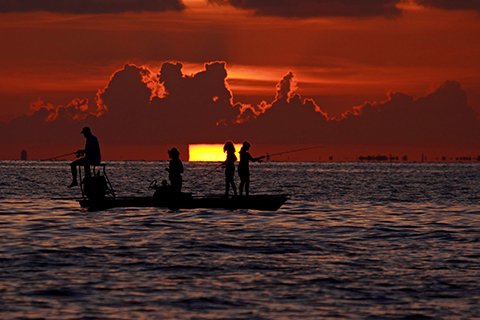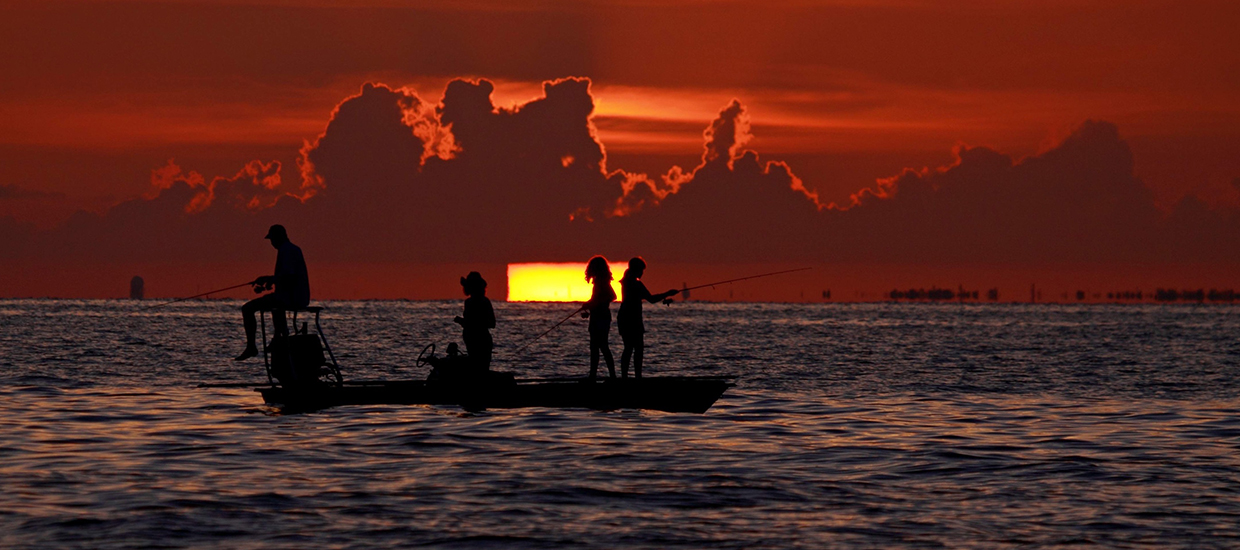Fisheries management and conservation supports the stewardship of marine resources by providing quantitative knowledge and modeling of the natural and anthropogenic processes that regulate marine ecosystems. These models also provide predictions on the future behavior of those ecosystems.
The Fisheries Management and Conservation MPS track allows students to develop the professional skills required to be a scientist supporting marine resource management with curriculum options including, fishery and protected resources management, fisheries assessments, and quantitative ecology. Graduates with these skills find employment in government agencies, such as the National Marine Fisheries Service, state agencies, fishery councils, regional NOAA laboratories, and Non-Governmental Organizations (NGOs).
Prerequisites:
Bachelor’s degree in any field
Course topics:
Processes influencing fisheries and protected resources management, development of marine ecosystem policy alternatives, design and implementation of surveys and monitoring programs for fisheries and marine ecosystems. Statistical and mathematical modeling tools in marine and fisheries ecology.
Example job titles:
- Associate Software Developer
- Fisheries Management Planner
- Field Natural Resources Specialist







